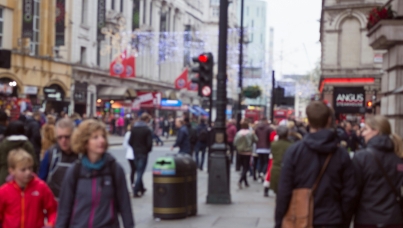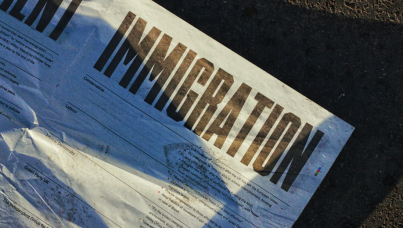None Of The Above: Non-Voters And The 2001 Election
The low turnout at the last election was not down to apathy but because non-voters made a positive decision to abstain suggests a new report from the Hansard Society1.
None of the Above, to be launched in Parliament on Monday December 102 , is based on focus group research examining attitudes of non-voters to parliamentary democracy and political participation3. The key findings were:
- Not voting was something most participants had consciously chosen to do.
"Not voting is like a vote in itself"
- Many participants did not vote because they did not see a clear choice between the politicians on offer to them or did not see a better alternative for which to vote.
"This is the first time I haven't voted. I voted in 1997. There didn't seem to be such a blur between the two parties Female, 45-65, lapsed non-voter, Plymouth
- Many younger voters were concerned that they did not know enough to make an informed choice.
"I haven't got a clue who to vote for. I don't know what is going on in politics. So I have never voted because I don't know what is going on. I can't see the point in voting Female, 18-24, non-voter, Stockport
- It was not the 'boring' election campaign that put people off voting - they had already switched off from the political process before the campaign began.
"...you don't make your mind up in the weeks running up, you decide over those previous four years Male, 18-34, "activist' non-voter, Nottingham
- The media - especially television - plays a key role in creating or transmitting the images which gave our group their negative perceptions. Although politics is seen as familiar (often on radio/TV and in the newspapers) it is also perceived as distant and out of touch.
"...when I flicked on the telly and see them in parliament, they stand up and sit down and address each other. You see people arguing and laughing, you think "I don't want to listen to this". Female, 18-24, non-voter, Stockport
The overall conclusion drawn from the research into non-voters is that most are not less interested in politics - just less well-informed and less connected to the established political process; others are simply disillusioned. The cycle is self-perpetuating. Non-voters do not like what they see when they do connect with information about politics - which is usually only during elections when they cannot avoid it. This was a common thread across all the research groups, despite differences of geography, age and gender.
The challenge is for those who seek these votes (and the public service broadcasters who have a responsibility to provide the information voters need to make an informed choice) to explore how they can present a more attractive option for the four out of 10 adults who rejected them at the last general election. Right now, they really do not think it matters.
"It is funny, because you are talking about it like I might actually lose sleep over it, I don't." Male, 25-45, rare/non-voter, Watford.
Technical details
- The Hansard Society, funded by the Electoral Commission which has a statutory role in promoting participation in elections, commissioned MORI to carry out focus group discussions to explore why over five million fewer people voted on June 7th 2001 than in 1997. The full MORI research report will be available at www.hansardsociety.org.uk and at www.ipsos-mori.com. from Monday 10th December.
- The Challenge for Parliament, Monday December 10, 6.30pm, The Grand Committee Room, Palace of Westminster. Speakers: Mark Fisher MP, Mark Oaten MP, Shelagh Diplock, Peter Riddell Chair: Rt Hon Lord Newton of Braintree (Hansard Society Commission on Parliamentary Scrutiny).
- The research groups comprised a cross-section of non-voters, mainly younger people from a range of different constituency seat types, including some defined as 'activists' - people who had done any one of a range of activities including 'presented my views to an MP', 'urged someone outside my family to vote' and 'taken part in a demonstration, picket, march or sit-in'. The focus groups were conducted between 11-20 September 2001. For further information, see the None of the Above pdf, 145KB
Shelagh Diplock, Director of the Hansard Society, editor of the Report, 'None of the Above' is available for interview: Contact 020-7955 7459 weekdays, 01273-276 742 evenings & weekend.



